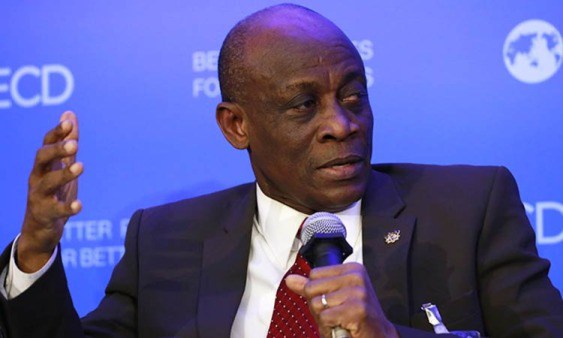…signals difficult times ahead
Former Finance Minister Seth Terkper has said tough times await the economy, given the recent budget that was presented in Parliament, which he says shows government plans to borrow more than indicated – adding that public debt is likely to hit 80 percent of GDP.
The 2021 first-quarter budget presented by Finance Minister Ken Ofori-Atta shows a deficit of 2.4 percent for the period and 8.3 percent at the end of the year. However, Mr. Terkepr has disputed the figures and says government is deliberately concealing the deficit situation just to avoid public displeasure at the ballooning debt situation.
His comments are premised on the fact that the budget shows the first quarter of next year will see a deficit of GH¢10.7billion, but government plans to borrow more than GH¢32.6 billion from both foreign and domestic sources. This, the former finance minister said, is questionable; hence, his call on government to come clean on the figures.
“The deficit will hit about 13-15 percent at the end of the year because of some financing that was excluded, and that will increase your debt. If you are currently at 77 percent of debt to GDP, according to the IMF and Fitch, then your debt will hit 80 percent in the first quarter.
“Your financing should be equal to your deficit, but in this case the financing is higher than the deficit. What it means is that a portion of it is going into expenditure that has not been disclosed. If indeed government will need GH¢10billion, then why are they borrowing GH¢32billion? So, we are in for a surprise. This year they are blaming everything on COVID-19, but if you look at the figures well, it has nothing to do with it,” he said.
He added: “If you look closely at the budget and you add compensation of employees and interest payment in the first quarter, you realise that the amount is higher than the total revenue. It means that your total revenue is not even able to pay your compensation and interest, let alone principal for the debt.
“So you are going to borrow to pay interest, and you are going to borrow to pay the entire debt. What if you don’t get the money? It means you can’t service your debt. And this is exactly what happened and they had to go to the Bank of Ghana,” he said, advising managers of the economy to develop serious plans that will slow the rate of borrowing and increase revenue, or else the debt situation will get out of hand.
Total public debt has hit more than 68.3 percent of GDP as of July 2020 – a figure the World Bank says puts the country at high risk of debt distress. The IMF, in its latest Regional Economic Outlook, has expressed concerns over the country’s worsening fiscal situation and ballooning public debt – which has been further exacerbated by the pandemic.
It projects fiscal deficit to hit -16.4 percent of GDP at end of the year, indicating the country will have to borrow more than the GH¢44billion (which is 11.4 percent of GDP) it earlier stated will be needed to close the fiscal gap for the year.










